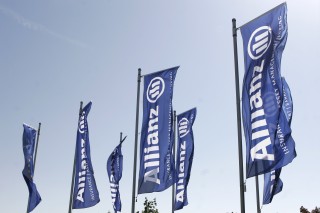Recently, Allianz Global Corporate Specialty (AGCS) released the 6th annual Allianz Risk Barometer analysing corporate risks globally, as well as by region, country, industry, and size of business. According to the report companies operating in Nigeria increasingly worry about the struggling economy, corruption, volatility and political risks and violence. Other growing concerns in the country are digital dilemmas arising from new technologies and cyber risks, as well as government policies which do not enable businesses to thrive.
The report is based on a survey conducted among 1,237 risk experts from 55 countries. In Nigeria, Allianz Global Corporate Specialty (AGCS) Africa worked with the Association of Enterprise Risk Management Professionals Nigeria (ERM), Risk Managers Society of Nigeria (RIMSON) and Risk Managers Association of Nigeria (RIMAN).
“The Allianz Risk Barometer 2017 is a worthy compass, telescope, and guide which Risk Managers, Investors, Professionals, Governments, Policy Makers and Corporate Entities should not ignore in strategic decisions in 2017,” says the president of RIMSON Engineer Jacob Odeonsun.
Here are some of the risks business owners should be worried about in 2017
Macro Economic condition and market volatility
According to the report, Nigerian risk managers cited tough macroeconomic conditions and market volatility as their top two risks. Currently, Nigeria is been affected by several macroeconomic challenges which include low commodity prices, the Chinese slowdown and the tightening of US monetary policy. It is also suffering from its own internal pressures such as inflation, weak domestic demand, and socio-political tensions.
“The country’s growth is held back by a weaker macroeconomic environment, the struggling financial sector, underdeveloped infrastructure, insufficient health, and education,” said Delphine Maïdou, CEO AGCS Africa at a press conference held in Lagos today.
To mitigate volatility risks and anticipate any sudden changes of rules that could impact markets, companies in Nigeria will need to invest more resources into better monitoring politics and policy-making around the world in 2017.
Corruption
In the report, corruption is still a concern in the country. According to the report, corruption in Nigeria could cost up to 37 percent of GDP by 2030 if it’s not dealt with immediately. This cost is estimated to be about $2,000 per person by 2030. In the Global Competitiveness Report, Corruption is ranked second as one of the most problematic factors for doing business in Nigeria. The report suggests that a significant reduction in corruption will boost current per capita income and improve the lives of many in Nigeria.
Cyber threat
Cyber threat is also not left off as one of the threats that companies should watch out for in Nigeria in 2017. According to the report, the most common cyber threats are from hackers, disgruntled employees, negligence and competitors.
“This is a double-edged sword to the country as Africa has a particular role in embracing and responding to new technologies compared to mature markets while speeding up cyber security and personal data protection legislations,” said Nobuhle Nkosi Head of Financial Lines AGCS Africa.
Political risk
Political risks and violence is still a major challenge largely due to terrorism and kidnaps for ransom (KNR). The overall risk for Nigeria in 2017 is high on crime, terrorism, conflict, political violence and kidnap. According to the report, the resurgence of violence in the Niger Delta is expected to continue into 2017. Militant groups are likely to continue high-profile attacks on oil and gas infrastructure to press the federal government into meeting its demands, which include greater autonomy for the region and a greater share of the oil wealth, which may be untenable considering Nigeria’s current fiscal woes. Greater military action risks increasing anti-government sentiment.
The report further revealed that kidnapping, primarily for the purposes of financial gain, will remain a complex and multifaceted security threat in Nigeria in 2017. It would be recalled that Nigeria was one of the world’s top five worst kidnapping-affected countries and the region’s kidnapping capital. However, the ongoing state military offensives over the past 18 months have led to the relative containment of Islamic State (IS) affiliate, Boko Haram, in northeastern Nigeria.
Infographics from the 2017 Allianz Risk Barometer











